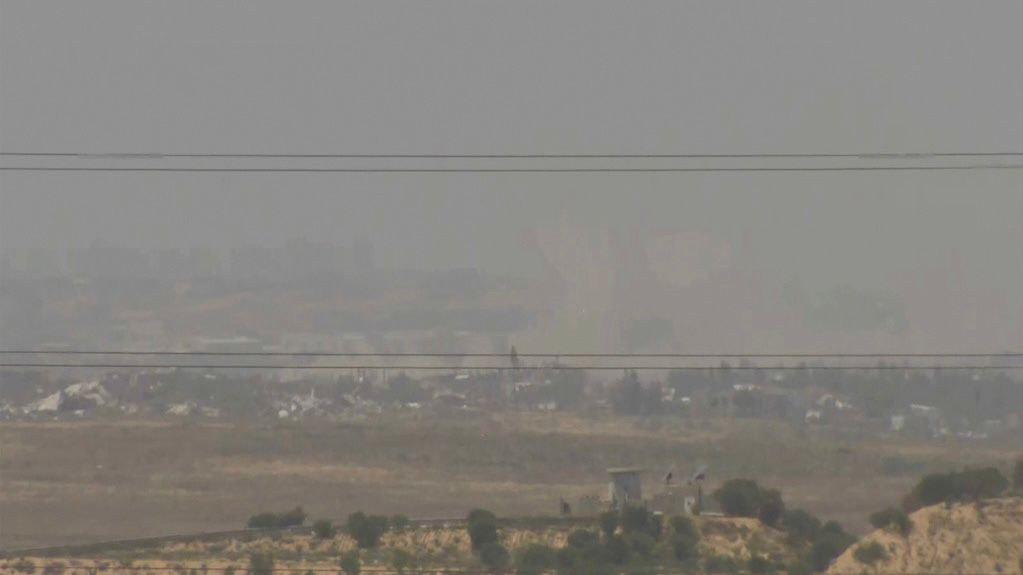World
Israeli communications minister orders return of seized camera equipment to AP

Israel’s communications minister ordered the government to return seized camera equipment to The Associated Press after blocking its live video of Gaza earlier Tuesday.
Israeli officials seized the equipment after accusing the news organization of violating a new media law by providing images to Al Jazeera.
Israeli officials used the new law on May 5 to close down the offices of Qatar-based Al Jazeera, confiscating its equipment, banning its broadcasts and blocking its websites.
The Biden administration, journalism organizations and an Israeli opposition leader put pressure on the government of Prime Minister Benjamin Netanyahu after officials seizing the AP equipment.
Al Jazeera, which is based in Qatar, is one of thousands of AP customers, and it receives live video from AP and other news organizations.
“The Associated Press decries in the strongest terms the actions of the Israeli government to shut down our longstanding live feed showing a view into Gaza and seize AP equipment,” said Lauren Easton, vice president of corporate communications at the news organization. “The shutdown was not based on the content of the feed but rather an abusive use by the Israeli government of the country’s new foreign broadcaster law.”
Officials from the Communications Ministry arrived at the AP location in the southern town of Sderot on Tuesday afternoon and seized the equipment. They handed the AP a piece of paper, signed by Communications Minister Shlomo Karhi, alleging it was violating the country’s foreign broadcaster law.
Karhi is the minister who later ordered the equipment to be returned.
Shortly before its equipment was seized on Tuesday, AP was broadcasting a general view of northern Gaza. The AP complies with Israel’s military censorship rules, which prohibit broadcasts of details like troop movements that could endanger soldiers. The live video has generally shown smoke rising over the territory.
The AP had been ordered verbally last Thursday to cease the live transmission, which it refused to do.
Israel’s opposition leader Yair Lapid called the move against AP “an act of madness.”
“This is not Al Jazeera. This is an American news outlet,” he said. “This government acts as if it has decided to make sure at any cost that Israel will be shunned all over the world.”
Karhi responded to Lapid that the law passed unanimously by the government states that any device used to deliver Al Jazeera content could be seized.
“We will continue to act decisively against anyone who tries to harm our soldiers and the security of the state, even if you don’t like it,” he wrote to Lapid on X.
When Israel closed down Al Jazeera’s offices earlier this month, media groups warned of the serious implications for press freedom in the country. The law gives Karhi, part of the hard-right flank of Israeli Prime Minister Benjamin Netanyahu’s Likud Party, wide leeway to enforce it against other media.
“Israel’s move today is a slippery slope,” the Foreign Press Association said in a statement, warning that the law “could allow Israel to block media coverage of virtually any news event on vague security grounds.”
White House press secretary Karine Jean-Pierre said the U.S. was “looking into” what happened and that it was “essential” for journalists to be allowed to do their jobs.
Israel has long had a rocky relationship with Al Jazeera, accusing it of bias against the country, and Netanyahu has called it a “terror channel” that spreads incitement.
Al Jazeera is one of the few international news outlets that has remained in Gaza throughout the war, broadcasting scenes of airstrikes and overcrowded hospitals and accusing Israel of massacres. AP is also in Gaza.
During the previous Israel-Hamas war in 2021, the army destroyed the building housing AP’s Gaza office, claiming Hamas had used the building for military purposes. The AP denied any knowledge of a Hamas presence, and the army never provided any evidence to back up its claim.
The war in Gaza began with a Hamas attack in Israel that killed 1,200 people and saw 250 others taken hostage. More than 35,000 Palestinians have been killed since then, according to Gaza’s Health Ministry, which doesn’t distinguish between civilians and combatants in its count.










